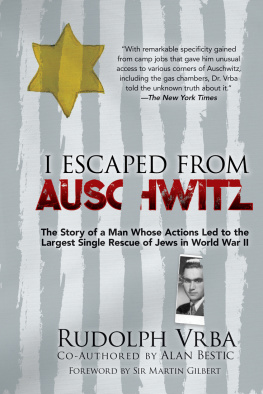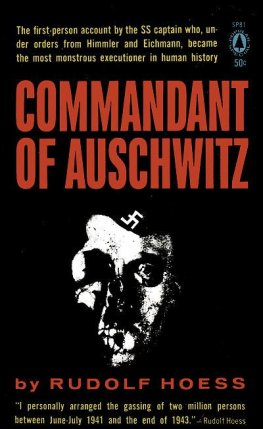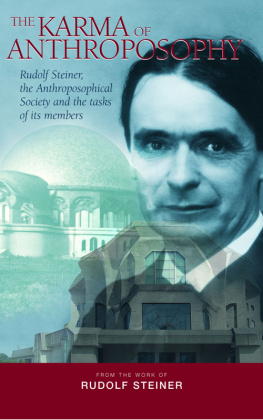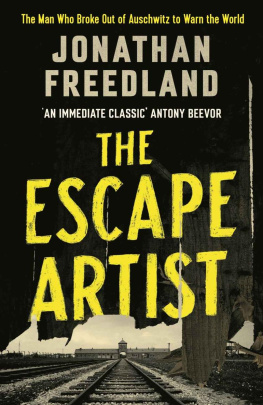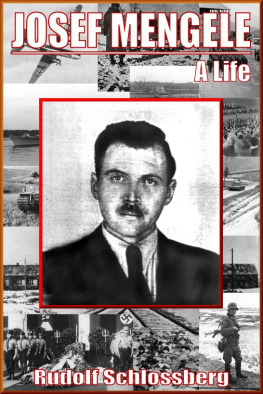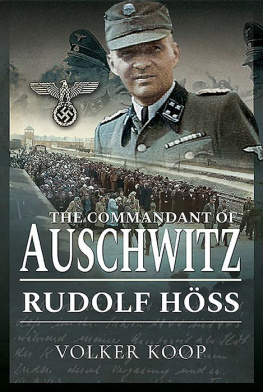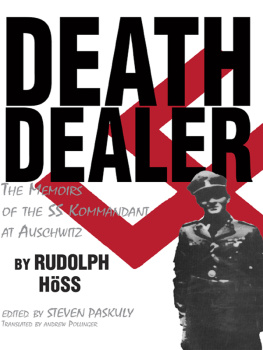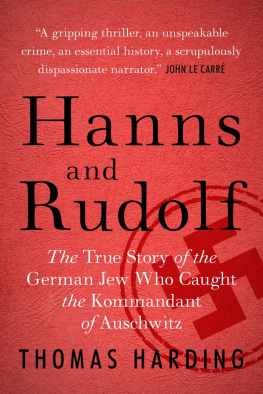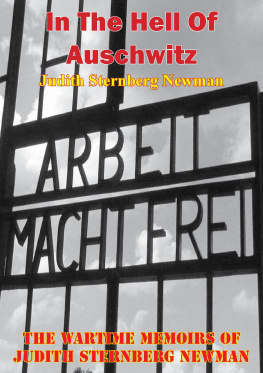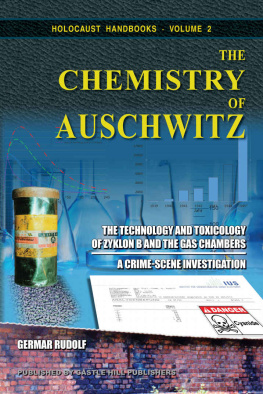Rudolf Vrba - I Escaped from Auschwitz
Here you can read online Rudolf Vrba - I Escaped from Auschwitz full text of the book (entire story) in english for free. Download pdf and epub, get meaning, cover and reviews about this ebook. year: 2020, publisher: Racehorse, genre: Detective and thriller. Description of the work, (preface) as well as reviews are available. Best literature library LitArk.com created for fans of good reading and offers a wide selection of genres:
Romance novel
Science fiction
Adventure
Detective
Science
History
Home and family
Prose
Art
Politics
Computer
Non-fiction
Religion
Business
Children
Humor
Choose a favorite category and find really read worthwhile books. Enjoy immersion in the world of imagination, feel the emotions of the characters or learn something new for yourself, make an fascinating discovery.
- Book:I Escaped from Auschwitz
- Author:
- Publisher:Racehorse
- Genre:
- Year:2020
- Rating:5 / 5
- Favourites:Add to favourites
- Your mark:
- 100
- 1
- 2
- 3
- 4
- 5
I Escaped from Auschwitz: summary, description and annotation
We offer to read an annotation, description, summary or preface (depends on what the author of the book "I Escaped from Auschwitz" wrote himself). If you haven't found the necessary information about the book — write in the comments, we will try to find it.
I Escaped from Auschwitz — read online for free the complete book (whole text) full work
Below is the text of the book, divided by pages. System saving the place of the last page read, allows you to conveniently read the book "I Escaped from Auschwitz" online for free, without having to search again every time where you left off. Put a bookmark, and you can go to the page where you finished reading at any time.
Font size:
Interval:
Bookmark:



Copyright 2020 by Rudolf Vrba Archives, LLC
Previously published in 2002 by Barricade Books, Inc.
All rights reserved. No part of this book may be reproduced in any manner without the express written consent of the publisher, except in the case of brief excerpts in critical reviews or articles. All inquiries should be addressed to Skyhorse Publishing, 307 West 36th Street, 11th Floor, New York, NY 10018.
Racehorse Publishing books may be purchased in bulk at special discounts for sales promotion, corporate gifts, fund-raising, or educational purposes. Special editions can also be created to specifications. For details, contact the Special Sales Department, Skyhorse Publishing, 307 West 36th Street, 11th Floor, New York, NY 10018 or .
Racehorse Publishing is a pending trademark of Skyhorse Publishing, Inc., a Delaware corporation.
Visit our website at www.skyhorsepublishing.com.
10 9 8 7 6 5 4 3 2 1
Library of Congress Cataloging-in-Publication Data is available on file.
Cover artwork by Getty Images
ISBN: 978-1-63158-471-8
eISBN: 978-1-63158-472-5
Printed in the United States of America
EDITORS NOTE FROM ROBIN VRBA & NIKOLA ZIMRING
This version of the book underwent some editorial changes. We have decided to comply with the wishes of the author, who initiated many of these changes when he participated in the translation of the book into Czech, which was published in 1998.
In the footnotes, we have also updated information that was not available at the time the book was written.
TABLE OF CONTENTS
FOREWORD
I T IS AN HONOR TO BE ASKED TO WRITE A FEW WORDS ABOUT Rudolf Vrbas book. Like many people of my generation, who began reading about the holocaust in the 1960s, I feel it was a book that made an enormous impact.
Vrba was a prisoner in Auschwitz for twenty-one months and seven days. He then escaped with his fellow Slovak Alfred Wetzler. As they made their way south into Slovakia, they carried with them, seared in their immediate memory, as a matter of personal knowledge, the true story of Auschwitz, the hitherto unknown destination of Jewish deportees from all over Europe.
The way in which the information brought by the escapees was handled, and mishandled, provides this bookand twentieth-century historywith a terrible cry of pain. Alas, we cannot revisit or refashion the past. But through these pages, we can learn a great deal about it, and perhaps, if we have the courage of a man like Rudolf Vrba, we can do something to prevent the continual workings and spreading of evil
There is much that Rudolf Vrba cannot forgive. In reading this book, one comes face-to-face with a reality that cannot be expunged, and with a man who deserves the thanks of his people today as much as he needed their attention and response half a century ago.
Sir Martin Gilbert
Merton College, Oxford
PREFACE
T HIS BOOK CONSISTS OF A HANDFUL OF MY MEMORIES OF events that took place more than fifty years ago. It is an attempt to describe (a) how the German Reich managed to get me from my native Czechoslovakia into the death camps of Majdanek and Auschwitz against my will; (b) some of my experiences as a prisoner in these death camps from June 1942 until April 1944; (c) my escape from Auschwitz on April 7, 1944, with a fellow prisoner Alfred Wetzler; and (d) some relevant events following our escape.
I think I should say something about how and why this book was written. Its writing took place in a very different environment while I was on my regular summer holidays in August 1963 in London, England.
After the war ended in 1945, I lived in Prague. This city became my real home until 1958, when I left the country. In Prague, I studied chemistry and biochemistry and began my scientific career. To this day, my livelihood is connected with the roots I established there.
I cannot recall during all the time I lived in Prague if anyone ever asked me what actually happened in Auschwitz. I do not know whether this was caused by a lack of interest or because the subject was taboo. Many events relevant to the real history of the Czech and Slovak lands are connected with Auschwitz: for example, the largest single execution of Czech citizens in the whole history of the people living in Czech lands took place there. This event, which is a part of my personal life, was perhaps for the first time described in my book written in London.
True enough, already in the fifties, the Union of Antifascist Fighters in Prague had arranged an annual Auschwitz Commemorative Evening, and on one occasion, I even went there. I heard a lot about the heroic Czech Communists there. There were dozens of them as well as hundreds of other Czech citizens (may their memory be honored) who died in Auschwitz for their resistance to the Nazis. During this commemorative occasion, nobody mentioned the murder of the many thousands of Czech-speaking Jewish children who were murdered in cold blood at Auschwitz and became national martyrs whether they wanted it or not. Nobody mentioned the fate of the Jews either. I recognized some former Jewish prisoners from Auschwitz on the podium. After the meeting, a suspiciously well-dressed gentleman approached me and asked whether I took notice that the podium was full of Jews. I did not answer. It was sometime around the anti-Semitic Slansky trials of 1952, and I did not want to provoke my fate.
Later, I worked in Israel (19581960), where I spent many hours in in the library of the famous Weizmann Research Institute, named after Chaim Weizmann. For decades before and during the Second World War, he had been a leading Zionist. It could be and, indeed, it was sometimes claimed that he was a leader of all Jews. Perhaps that was the reason he became the first President of Israel when the Jewish state was established in 1948. Therefore, I read with interest his account of his leadership and of his life as he described it in his modestly entitled Trial and Error . In the biographys index, Rehovot is mentioned more than a dozen times.
I wondered how many times Auschwitz would be mentioned considering a hundred times more Jews died there than ever lived in Rehovot. To my surprise, I found that the word Auschwitz did not even rate a mention in the lifetime memories of the Jewish leader. I do not know whether this reflects a lack of interest by Weizmann and his circle, or whether the word Auschwitz was perhaps a taboo also in Israel at that time, albeit for some other hidden reasons.
In 1960, I was invited to come to England to take up a position on the research staff of the British Medical Research Council. This was a sort of Mecca for scientists, and therefore, I was delighted to move to England. I soon acquired many English habits and became an avid drinker of tea and reader of British newspapers, favorite occupations of the English, particularly on Sundays.
In 1960, Adolf Eichmann was arrested. Suddenly, in almost all the Sunday papers, the Holocaust was discussed, and the word Auschwitz was frequently mentioned. It had almost become a household word. One of my new friends, Alan Perry, a journalist at BBC, liked to discuss this subject with me, particularly when he noticed I knew more about the subject than he had ever read in the newspapers. He told me that one of the important British newspapers of that time, the Trade Unions paper the Daily Herald, had not yet carried a major report on the subject of Eichmanns activities. Alan Perry suggested that the Daily Herald might be interested in publishing an article by me in light of my intimate knowledge of the subject.
Next pageFont size:
Interval:
Bookmark:
Similar books «I Escaped from Auschwitz»
Look at similar books to I Escaped from Auschwitz. We have selected literature similar in name and meaning in the hope of providing readers with more options to find new, interesting, not yet read works.
Discussion, reviews of the book I Escaped from Auschwitz and just readers' own opinions. Leave your comments, write what you think about the work, its meaning or the main characters. Specify what exactly you liked and what you didn't like, and why you think so.

